Filter by
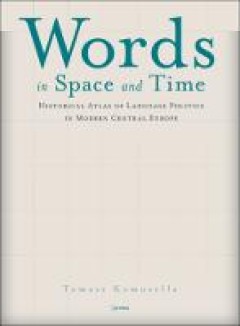
Words in space and time : a historical atlas of language politics in modern C…
With forty-two extensively annotated maps, this atlas offers novel insights into the history and mechanics of how Central Europe’s languages have been made, unmade, and deployed for political action. The innovative combination of linguistics, history, and cartography makes a wealth of hard-to-reach knowledge readily available to both specialist and general readers. It combines information on …
- Edition
- -
- ISBN/ISSN
- 9789633864180
- Collation
- xvii, 289 p. : ill.
- Series Title
- -
- Call Number
- 306.44943 KAM w

Ageing with Smartphones in Urban Italy : Care and community in Milan and beyond
‘Who am I at this (st)age? Where am I and where should I be, and how and where should I live?’ These questions, which individuals ask themselves throughout their lives, are among the central themes of this book, which presents an anthropological account of the everyday experiences of age and ageing in an inner-city neighbourhood in Milan, and in places and spaces beyond.Ageing with Smartpho…
- Edition
- -
- ISBN/ISSN
- 9781787359710
- Collation
- 188p. ; ill.
- Series Title
- Ageing with Smartphones
- Call Number
- 305.260945211 SHI a
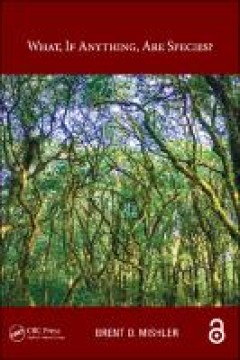
What, if anything, are species?
This book is an extended argument for abandoning the species rank. Instead, the author proposes that the rank of "species" be replaced by a pluralistic and multi-level view. In such a view, all clades including the smallest identifiable one would be named and studied within a phylogenetic context. What are currently called "species" represent different sorts of things depending on the sort of o…
- Edition
- Ed. 1
- ISBN/ISSN
- 9781315119687
- Collation
- vii, 160 p. : ill.
- Series Title
- Species and Systematics
- Call Number
- 574.012 MIS w
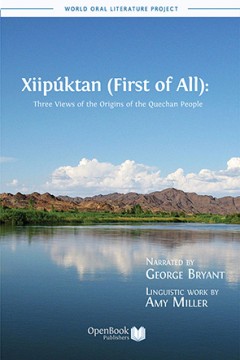
Xiipúktan (first of all): three views of the origins of the Quechan people
The Quechan people live along the lower part of the Colorado River in the United States. According to tradition, the Quechan and other Yuman people were created at the beginning of time, and their Creation myth explains how they came into existence, the origin of their environment, and the significance of their oldest traditions. The Creation myth forms the backdrop against which much of the tr…
- Edition
- -
- ISBN/ISSN
- 9781909254411
- Collation
- 210 p. ; 24 cm
- Series Title
- -
- Call Number
- 973.0497 BRY x
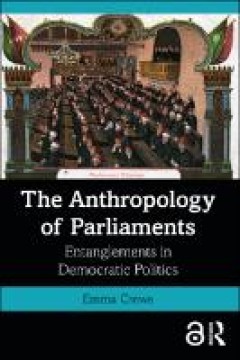
The anthropology of parliaments: entanglements in democratic politics
The Anthropology of Parliaments offers a fresh, comparative approach to analysing parliaments and democratic politics, drawing together rare ethnographic work by anthropologists and politics scholars from around the world. Crewe’s insights deepen our understanding of the complexity of political institutions. She reveals how elected politicians navigate relationships by forging alliances and t…
- Edition
- -
- ISBN/ISSN
- 9781003084488
- Collation
- 242 p.: black and white, ill.
- Series Title
- -
- Call Number
- 328.3 CRE t
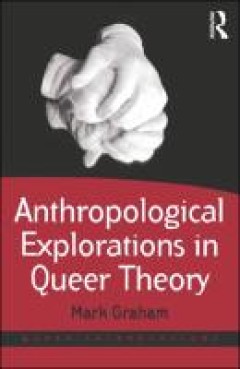
Anthropological explorations in queer theory
Anthropological Explorations in Queer Theory offers a wide ranging fusion of queer theory with anthropological theory, shifting away from the discussion of gender categories and identities that have often constituted a central concern of queer theory and instead exploring the queer elements of contexts in which they are not normally apparent. Engaging with a number of apparently 'non-sexual' to…
- Edition
- -
- ISBN/ISSN
- 9781315567280
- Collation
- 182 p.: black and white, ill.
- Series Title
- Queer Interventions
- Call Number
- 306.7601 GRA a
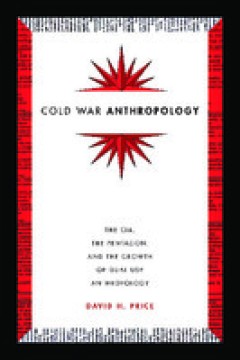
Cold war anthropology
In a wide-ranging and in-depth study of the recent history of anthropology, David Price offers a provocative account of the ways anthropology has been influenced by U.S. imperial projects around the world, and by CIA funding in particular. DUAL USE ANTHROPOLOGY is the third in Price’s trilogy on the history of the discipline of anthropology and its tangled relationship with the American milit…
- Edition
- -
- ISBN/ISSN
- 9780822374381
- Collation
- 472 p.: black and white, ill.
- Series Title
- -
- Call Number
- 301.09730904 PRI c
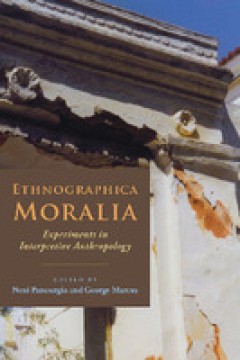
Ethnographica moralia: experiments in interpretive anthropology
Panourgia and Marcus bring together anthropologists working in various parts of the world (Greece, Bali, Taiwan, the United States) with classicists, historians, and scholars in cultural studies. The volume takes into account global realities such as 9/11 and the opening of the Cypriot Green Line and explores the different ways in which Geertz’s anthropology has shaped the pedagogy of their d…
- Edition
- -
- ISBN/ISSN
- 9780823228874
- Collation
- 291 p.
- Series Title
- -
- Call Number
- 301.01 PAN e
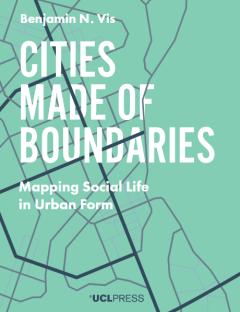
Cities made of boundaries : mapping social life in urban form
Cities Made of Boundaries presents the theoretical foundation and concepts for a new social scientific urban morphological mapping method, Boundary Line Type (BLT) Mapping. Its vantage is a plea to establish a frame of reference for radically comparative urban studies positioned between geography and archaeology. Based in multidisciplinary social and spatial theory, a critical realist understan…
- Edition
- -
- ISBN/ISSN
- 9781787351059
- Collation
- 416p. ; ill.
- Series Title
- -
- Call Number
- 307.76 BEN c

The search for the first americans : science, power, politics
"Who were the First Americans? Where did they come from? When did they get here? Are they the ancestors of modern Native Americans? These questions might seem straightforward, but scientists in competing fields have failed to convince one another with their theories and evidence, much less Native American peoples. The practice of science in its search for the First Americans is a flawed endeavo…
- Edition
- -
- ISBN/ISSN
- 9780806175935
- Collation
- ix, 163 p.
- Series Title
- -
- Call Number
- 970.00497 DAV t
 Computer Science, Information & General Works
Computer Science, Information & General Works  Philosophy & Psychology
Philosophy & Psychology  Religion
Religion  Social Sciences
Social Sciences  Language
Language  Pure Science
Pure Science  Applied Sciences
Applied Sciences  Art & Recreation
Art & Recreation  Literature
Literature  History & Geography
History & Geography